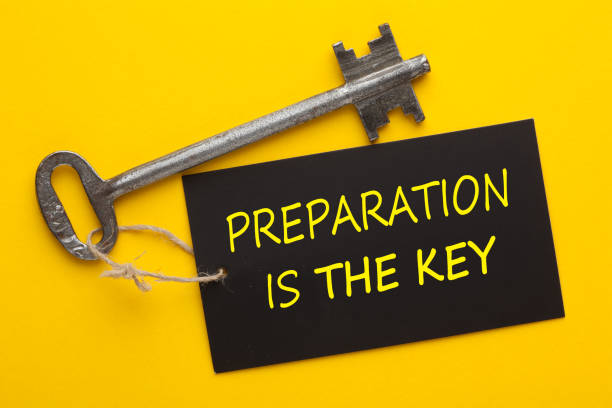After searching, applying, and networking, you have finally landed a job interview. Congratulations! Now what?
The most important part of the interview is all the work you do BEFORE the actual interview. Your interview preparation will depend on the specifics surrounding the job, the company, and even who is interviewing you and how.
Research the company.
Learn as much as you can about the company, and from as many sources as you can. Spend time on the company website, talk to people in your network to find current and previous employees, and read current news releases. Be ready to talk about why you’d like to work there and what you can do for them. Identify a couple of key factors about the job and the organization that align well with your strengths, interests, and/or work style and get you excited about the position.
Research the open position.
Review the job description you looked at before you applied. What skills and experiences are they emphasizing? What problems will this role need to solve? These are the things you’ll want to emphasize throughout your interview.
Learn about the interviewers.
If you are not told who you will be meeting with during your interview, ask. For each interviewer, learn what their role at the company is and prep some questions that are specific to them. You can ask for details about their role and discuss current topics related to their department or field of work.
Find out what kind of interview you are in for and prepare accordingly.
Some companies will have you meet one on one with several different people at the company, while others might have you meet with multiple people at once or give an interview presentation. You may also have a phone or video interview. Ask the recruiter or HR contact about the interview format ahead of time. Once you know, investing time to become familiar will set you up for success.
Be ready to tell the interviewer about yourself.
Most interviewers will ask you to tell them about yourself or to walk them through your resume to start off the conversation. Be sure your answers are tailored to the job and company in which you are interviewing.
Brush up on interview skills and common interview questions.
Prepare answers to common interview questions, have examples/stories ready to share, and practice interviewing. This can be done in front of a mirror, with an interview coach, or a family member or friend. Most interviewers will ask several behavioral questions, that is, questions about what you have done in specific instances. While you can’t anticipate every possible situation you’ll be asked about, you can prepare a few stories about your past work experiences that you can adapt as needed.
Familiarize yourself with the STAR method.
Whenever you’re answering interview questions with a story, you want to make sure that story is well structured, and the takeaway is clear. Your goal should be to give your interviewer all the context they need to understand what happened while still answering the question clearly and concisely. One way to do this is using the STAR method.
STAR:
Situation: Briefly lay out the scenario, provide enough detail so the interviewer will understand the context and everything else in your answer.
Task: Talk about what your role in the situation was.
Action: Discuss what you did and why.
Result: Tell your interviewer about the outcome and what you learned.
Prepare questions to ask the interviewer.
Most interviews will wrap up with “Do you have any questions for me?” and you should absolutely have 5+ questions prepared. Plan some questions that are very specific to the job and company and things you genuinely want to learn.
Look appropriate and professional.
Remember the little things. Make sure your clothes are pressed, neat, clean, and appropriate for the interview (usually professional or business casual). Looking good and feeling good about yourself will help your confidence and performance during the interview.
Print copies of your resume and references.
Bring enough copies of your resume for everyone you are meeting with plus one to refer to yourself. If you have a phone or video interview you will want to refer to your resume, so print one prior. You may or may not be asked for a list of references, so it is always best to be prepared and list at least 3 professional references and their contact information.
Good luck! You got this.

